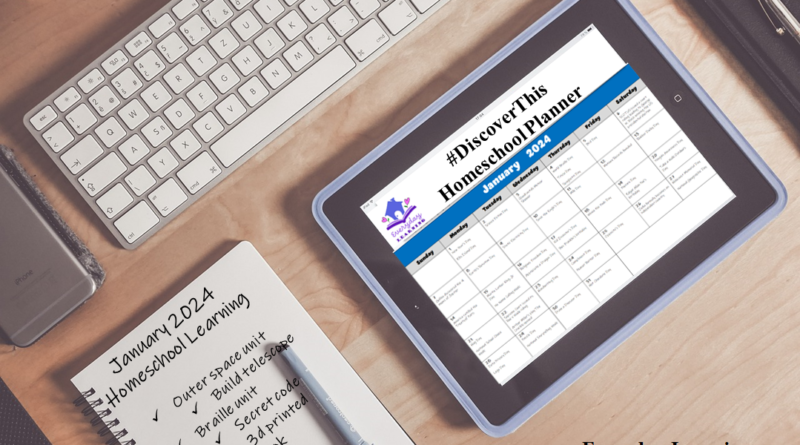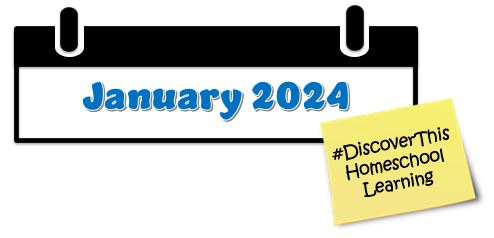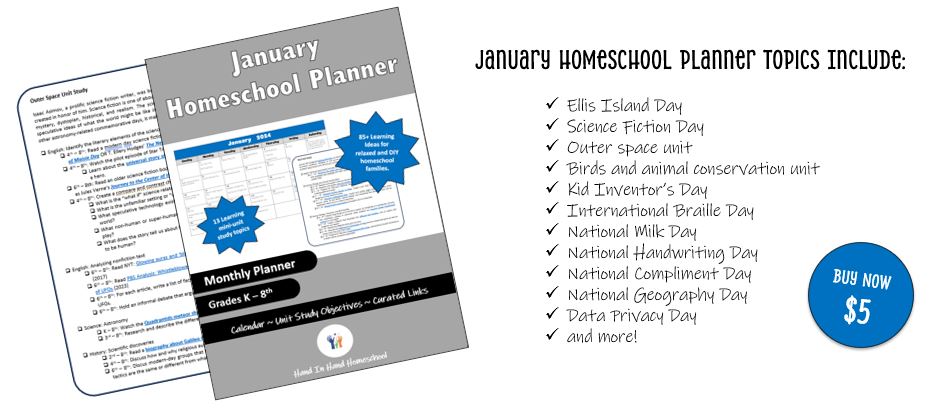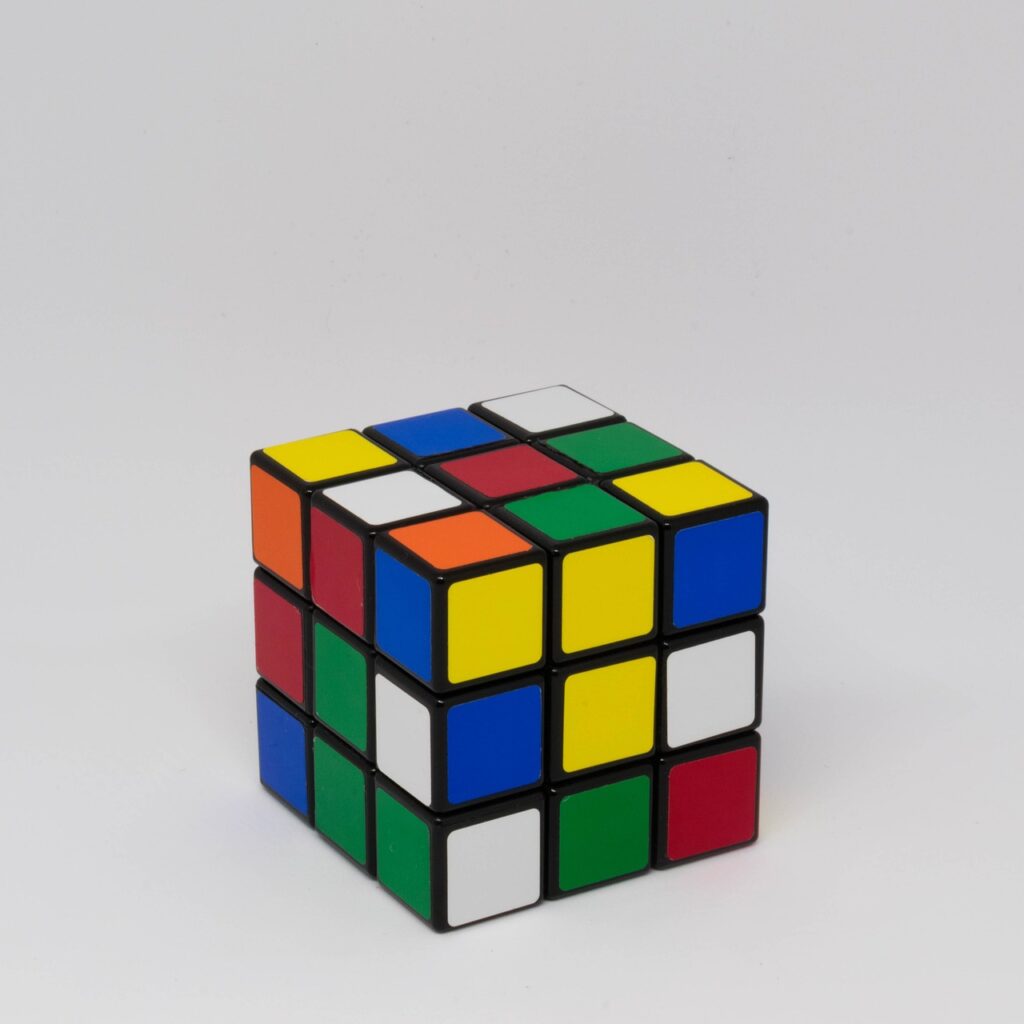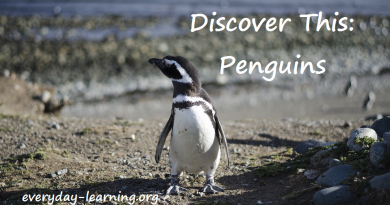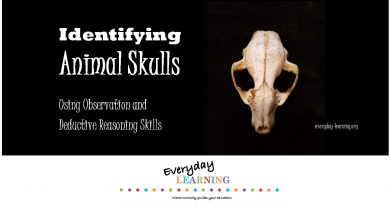DIY January #DiscoverThis Homeschool Planner
Welcome to a whole new year of learning. We’re kicking off 2024 early with a DIY January #DiscoverThis Homeschool Planner to support the relaxed and eclectic homeschoolers looking to make learning a little less like school and a whole lot more fun. Yes, it might still be December, but I want to make sure you have enough time to start getting your learning plans in place.
Our DIY January #DiscoverThis Homeschool Planner helps you reimagine homeschooling as a dynamic everyday adventure. Workbooks and online classes have their place, but homeschoolers are not obligated to use them for every subject. Instead, I’ve woven together learning experiences that tie in to national events, holidays, historical observances, and the ebb and flow of the seasons. Using curated lists of free materials, you can easily build elementary and middle school lessons and unit studies.
January #DiscoverThis Homeschool Planner
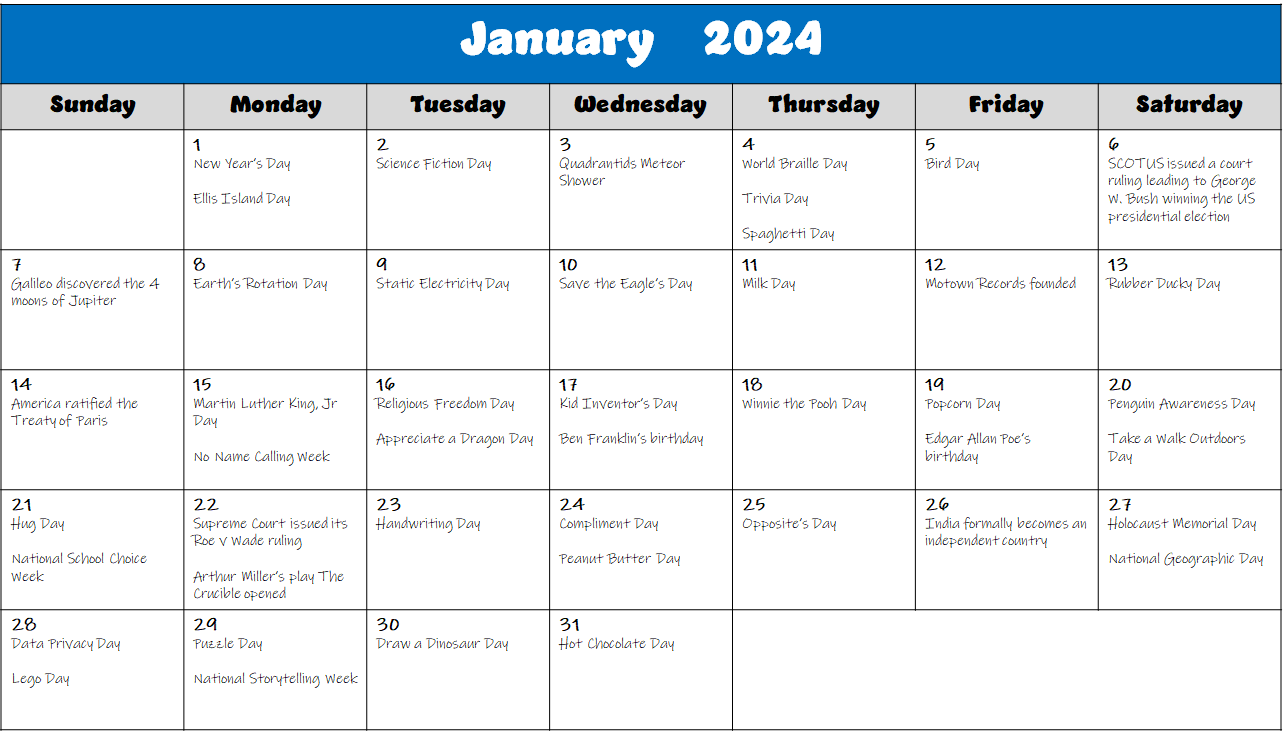
Getting back into a homeschool routine in January can be tough, after the winter holidays. If you need inspiration, take a look at the 31 days of learning adventures you can take with our January #DiscoverThis Homeschool Planner. You’ll find fun ideas for a range of kindergarten to 8th grade levels.
To get you started, I’ve broken down some free January #DiscoverThis Homeschool Planner ideas into manageable activities you can do with little to no-prep time. Keep reading to find out how you can make something as mundane as Data Privacy Day into a dynamic learning experience.
For more comprehensive learning objectives and even more curated links, check out our January #DiscoverThis Homeschool Planner. For $5 and streamline your planning in creating a month of learning fun. Best part: The add-on learning guide provides you with easy-to-track documentation checklists for your homeschool portfolio (if you’re required by law to keep one).
Bird Unit Study
January 5th recognizes National Bird Day, an event that brings awareness to wild-caught birds housed in inhumane conditions. Whether or not you’ve ever considered owning a bird, the day presents an excellent opportunity to fly off into any number of directions.
- Kids anxious to get a first time pet? Do research together on the costs and commitments involved with different pets and have your kids create a chart that compares and contrasts those facts.
- Learn about bird conservationship. Not every wild bird (or animal) can live in the wild. What types of injuries can a bird not naturally heal from? What local bird conservation groups exist in your area?
- Speaking of conservationship: Don’t feed ducks bread. Yes, it might be a favorite childhood memory of yours, but feeding wild birds bread leads to wing deformities. I’ve got an entire free #DiscoverThis mini unit study on angel wings caused by feeding waterfowl bread.
- Keep your bird unit alive by weaving in focused study on Save the Eagle’s Day (10th) and Penguin Awareness Day (20th). Use the free resources from Cornell University’s Bird Lab and the American Bird Conservancy to learn more about birds from different bird families. For example, what other raptors are related to eagles? How many flightless birds, like penguins, still exist? What can a bird’s beak tell you about it’s taxonomy classification?
- Plan ahead to participate in February 3rd’s National Feed the Birds Day as well as mid-February’s favorite crowdsourcing science project: Great Backyard Bird Count Project.
Sign Up to Receive More Free Everyday Learning Ideas
Mini Outer Space Unit Study
National Science Fiction Day on January 2nd serves as a great launch date for a mini outer space unit study. In honor of Isaac Asimov’s birthday, a prolific science fiction writer and author of I, Robot, take a trip to the library and find a science fiction novel to read.
- Schedule a movie night and watch the original 1966 Star Trek television pilot before watching the original 1977 Star Wars movie. Discuss how ideas about space travel changed in just 11 years. What science fiction gadgets in those movies are a reality today? Dive even deeper into the genre and learn about the Hero’s Journey.
- Plan for a super late night lesson to watch the Quadrantids meteor shower on January 3rd.
- Commemorate Galileo’s discovery of Jupiter’s moons on January 7, 1610 by learning about the planets in the solar system. Next, answer the question: What makes a celestial object a planet verus a moon (since Jupiter’s moons could theoretically sustain human life)?
- Earth’s Rotation Day on the 8th lets you extend your solar system learning to include the difference between planetary rotation and revolution. French physicist Leon Foucault discoverd Earth’s 24-hour rotation. Find a science center to visit that houses a pendulum named in his honor that helps to explain this science principle.
World Braille Day
In the early 1800s, a young, blind boy named Louis Braille heard about a tactile secret code used by the French military. The raised dot code helped men on the battlefield to send and receive messages at night without giving away their hiding positions (and getting shot). By the age of 15, Braille adapted the original secret code into a reading system that has now become widely used by blind people around the world.
- Watch a video on how to read the Braille system and then practice writing messages in Braille code.
- Learn about the Build a Better Book project hosted by the University of Colorado Boulder. Have your kids design a tactile storybook based on their favorite story. Reserve a time to use a 3D printer at your local library or makerspace OR buy a 3D printer pen and create the book to donate to a local school attended by a visually impaired student.
- Research other inventions and innovations that stemmed from wartime efforts to reduce unnecessary death. Start with another Frenchman, Nicolas Appert, who won a contest for creating a way of preserving food, which led to the invention of canned food.
Looking for More DIY January Learning Ideas?
Month Long Events
International Brainteaser Month:
Brainteasers may seem like a frivolous time filler, but riddles, playing sudoku, and even maze worksheets build critical thinking skills. Challenge your family to a different riddle or brainteaser every morning throughout January. Or, explore brainsteasers as you have time throughout the month:
- Give alphametics a go, a sneaky way to practice basic math facts.
- Math loving kids may get a kick out of the free Art of Problem Solving Alcumus brainteasers, featuring thousands of math contest problems to solve.
- Older kids may enjoy learning about syllogisms, a type of formal logic that teaches about valid arguments.
Financial Wellness Month:
Financial Wellness generally refers to a person’s financial situation: How well are they doing earning money, paying bills, and meeting future financial goals. Many investment firms and corporate HR departments will encourage people to take some time during January to do some self-assessment in these areas. Take a look for free material you may be able to use with your family. As homeschoolers, you can also celebrate Financial Wellness Month by:
- Give your kids an allowance and begin instilling lifelong healthy spending habits.
- Have your kids start a savings account at their local bank. Many banks offer no-fee kid accounts with as little as a $1 opening deposit. If you decide to give an allowance, you can make going to the bank a weekly activity as part of a save some-spend some-give some away financial wellness ethos.
- Play the Stock Market Game. This free online tool helps kids explore the risks and benefits of investing hypothetical money in the stock market.
National Get Organized Month:
The National Association of Productivity & Organizing Professionals created this pseudo-holiday, but why not take advantage of it. Organizing is an essential skill related to Executive Functioning. You’ll see all kinds of donation drives from organziations like Goodwill, hoping that you’ll drop off your unwanted but usable items. Alternatively, you can sell those items on any number of social media yard sale sites and use the $$ to fund your homeschooling. Or, you can get more involved in your community by joining a local Facebook Buy Nothing group and give away those things. Whatever you do, jump start spring cleaning and designate a day where everyone cleans out one closet or kitchen cabinet or dresser drawer. Add some learning fun to it by:
- Use a curated song list and weave some music, social studies, and fun conversations into your day.
- Listen to a kid-friendly podcast.

